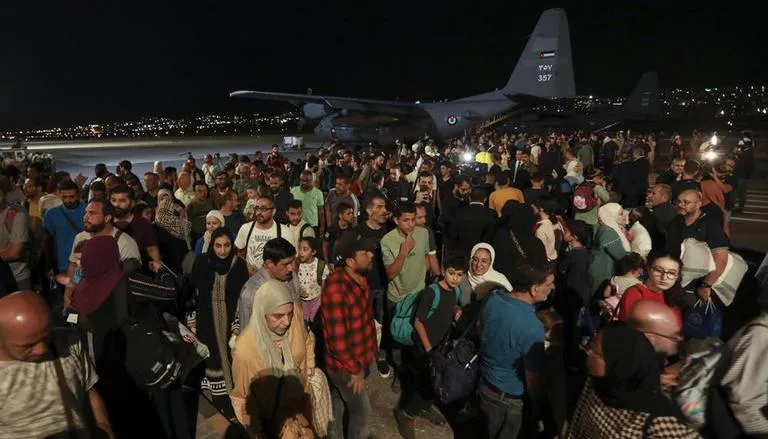Heavy Clashes Shatter Sudan’s Capital, Despite Extension Of Truce

Heavy explosions and gunfire rocked parts of Sudan’s capital, Khartoum and its twin city of Omdurman early Friday, residents said, despite the extension of a fragile truce between the county’s two top generals whose power struggle has killed hundreds.
The escalation came hours after both sides accepted a 72-hour extension of the truce, apparently to allow foreign governments complete the evacuation of their citizens from the chaos-stricken African nation.
Multiple short truces have not stopped the fighting, but they created enough of a lull for tens of thousands of Sudanese to flee to safer areas and for foreign nations to evacuate thousands of their citizens by land, air and sea.
Residents reported fierce clashes in Khartoum’s upscale neighborhood of Kafouri, where the military earlier had used warplanes to bomb its rivals, the Rapid Support Forces, in the area.
Clashes were also reported around the military’s headquarters, the Republican Palace and the area close to the Khartoum international airport. All these areas are flashpoints since the war between the military and the RSF erupted on April 15.
“Heavy explosions and constant gunfire are heard across Kafouri streets,” said Abdalla, a Kafouri resident who asked to be identified only by his first name for his safety.
In Omdurman, across the Nile from Khartoum, a protest group reported “constant explosions” in the district of Karari early Friday. It called residents in the area to remain vigilant.
The RSF has claimed that the army’s aircraft bombed its positions in Omdurman and Jabal Awliya, south of Khartoum. The military, meanwhile, accused the paramilitary force of beginning the attack. It was not possible to verify either claim.
The power struggle between the Sudanese military, led by Gen. Abdel-Fattah Burhan, and the RSF, led by Gen. Mohammed Hamdan Dagalo, has dealt a harsh blow to Sudan’s hopes for a democratic transition.
The rival generals came to power after a pro-democracy uprising led to the ouster of the former strongman Omar al-Bashir in April 2019. In 2021, the generals joined forces to seize power in a coup that ousted a western-backed join military-civilian administration.
The fighting has further plunged the country, especially its capital, into chaos, with tens of thousands seeking safety elsewhere. Many headed to the northern borders with Egypt, or to the city of Port Sudan on the Red Sea.
Those who remain in the capital have been living in rapidly deteriorating conditions, mostly trapped inside their homes for days amid the clashes. Food, water and other services have become scarce, and electricity is cut off across much of Khartoum and other cities.
The health care system is near to collapse with dozens of hospitals became out of service because of attacks, lack of staff or power. Multiple aid agencies have had to suspend operations and evacuated most if its employees out of the country.
At least 512 people, including civilians and combatants, have been killed in Sudan since April 15, with another 4,200 wounded, according to the Sudanese Health Ministry. The Doctors’ Syndicate, which tracks civilian casualties, has recorded at least 303 civilians killed and 1,848 wounded.





